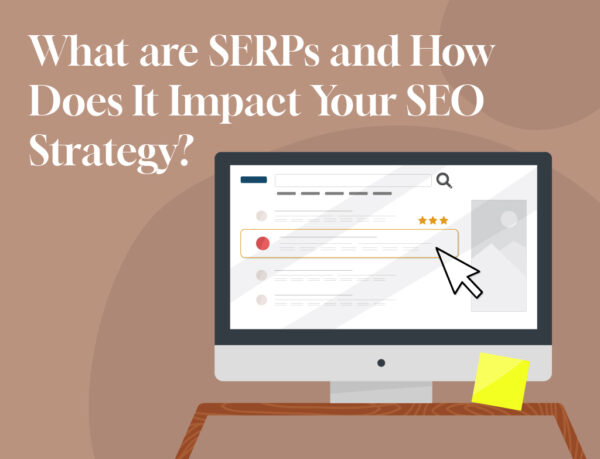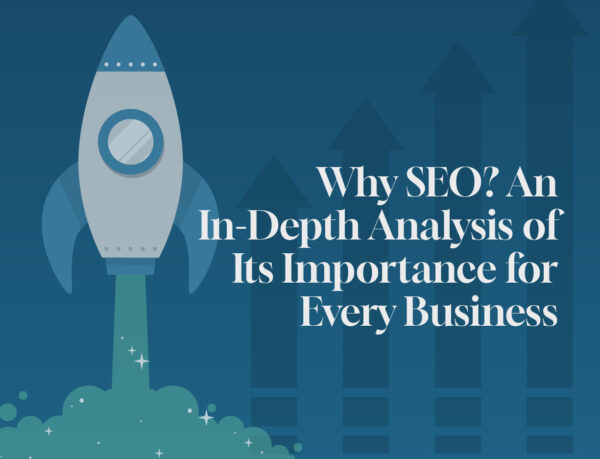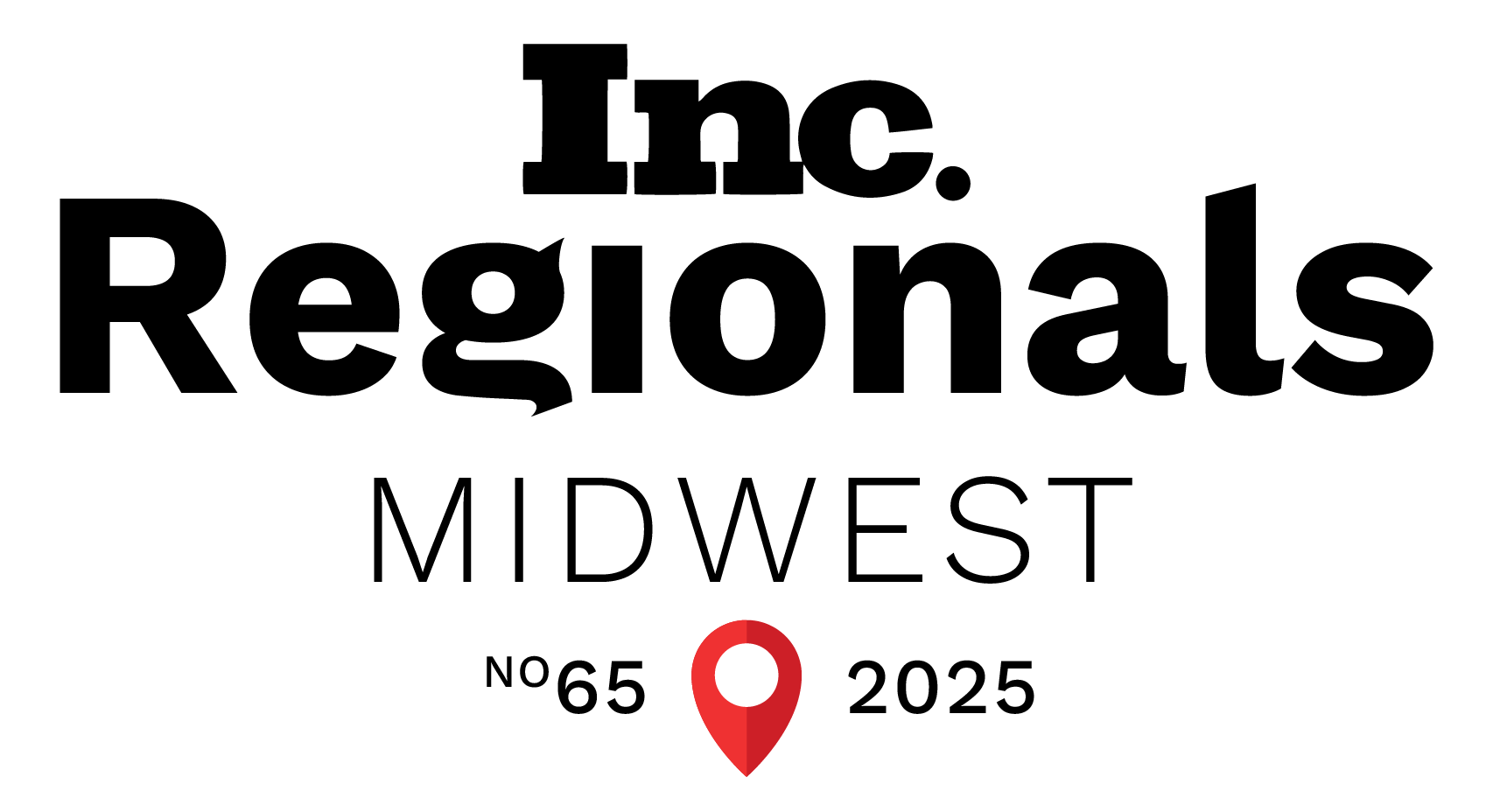The Importance of SEO for Your Business
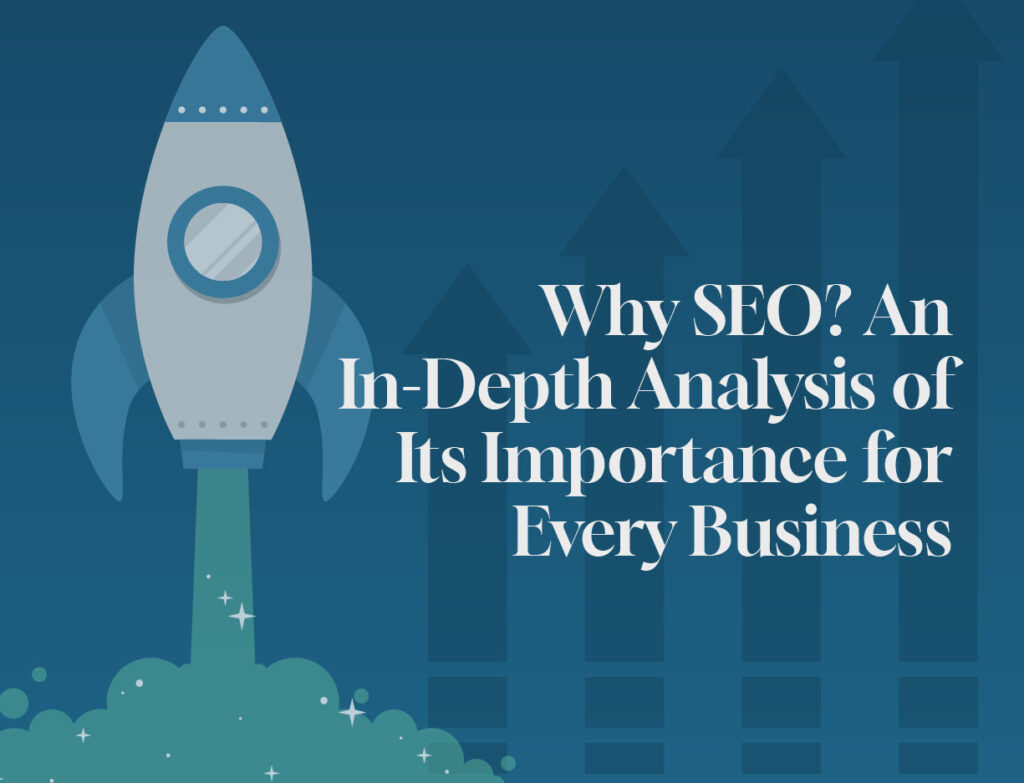
In This Article
SEO: three simple letters that hold the key to online success. You might know that search engine optimization (SEO) is important and has something to do with search engines. But what is SEO, and why does it matter?
This article is your primer on all things SEO and its potential impact on your business. If you’re ready to start honing your SEO knowledge without getting lost in the tech jargon, buckle up! We’ll explain SEO’s ins and outs, help you tap into its potential, and help your business shine online.
A Short Overview of SEO
SEO stands for search engine optimization, meaning optimizing your website content and technical setup so that Google (plus other search engines) can crawl, index, and understand your content to rank your web pages higher in search results. This digital marketing strategy will help you increase your site’s visibility and likely more organic search traffic.
If a potential customer or client searches for a topic relevant to your products or services, you want to be on the top of that search engine results page (SERP) alongside your competitors. If you aren’t, another business may have just gained a new customer—or you lost one.
SEO allows you to lead the customer through your buying process. In addition to visibility and increased website traffic, SEO contributes to your company’s authoritative voice in your industry. And that authority builds brand trust, which ultimately becomes brand loyalty.
Why Is SEO So Important for Your Business?
SEO is one of the most powerful digital marketing strategies you can deploy to improve sales, build credibility, increase brand awareness, and gain a leg up on your competitors.
A solid SEO foundation not only attracts new customers but also lets you deepen your business’s relationship with those customers because of the trust you establish with them.
How SEO Works
SEO is about both quality and quantity. Search engines want to provide the most relevant, high-quality results to searchers, so websites need substantive, helpful content and technical optimization to rank well.
A solid SEO strategy typically includes these elements:
- Keyword analysis
- Backlink building
- Content creation
- Technical maintenance
Let’s look at how each of these strengthens your digital marketing efforts.
Keyword Analysis
Every SEO strategy starts with research. More specifically, you need to understand the words your audience will use on a search engine when researching products, services, or topics relevant to your business.
At the most basic level, keywords have varying difficulty levels and search volume. For example, consider the keyword “biotech.” As a broad term, ranking on Google is quite difficult. Here is what Semrush tells us about this keyword:
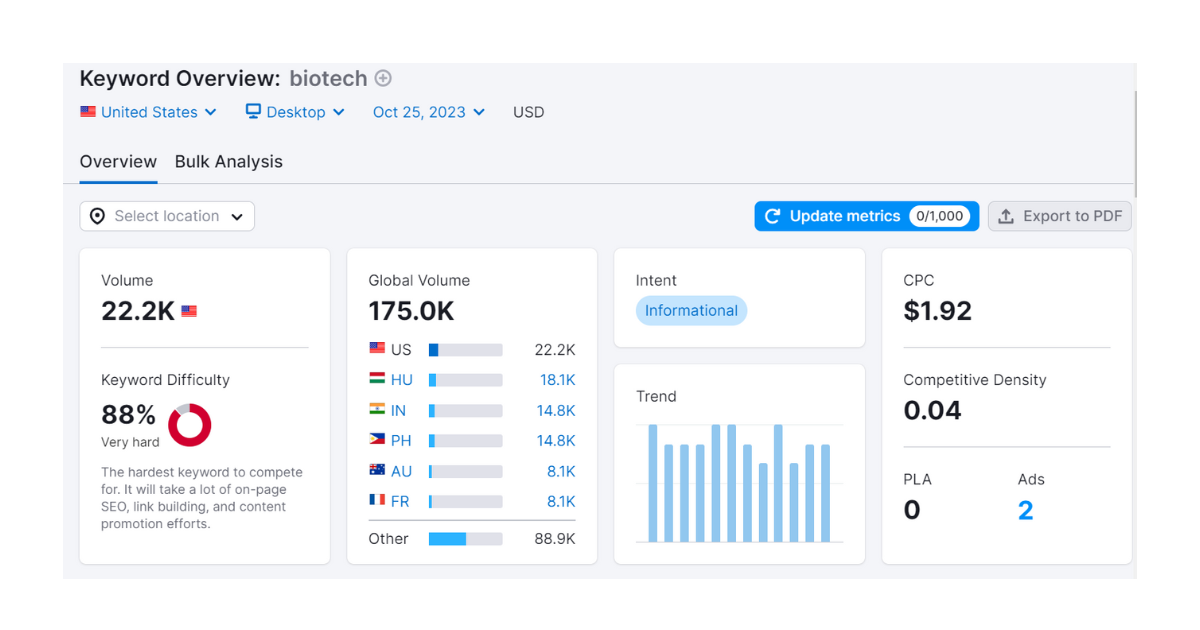
It has a 88% difficulty level, which means it’s “The hardest keyword to compete for, and it will take a lot of on-page SEO, link building, and content promotion efforts.”
Does that mean a company should give up trying to rank for that keyword? Not exactly. In keyword research, you’re also looking for long-tail keywords with a high enough monthly search volume and more reasonable keyword difficulty. Long-tail keywords are phrases or several words rather than a single word.
For example, you could instead target a keyword like “biotech startup.” Now, the keyword difficulty is 42%, which is “a competitive keyword to rank for, and you will need well-structured and unique content.” It also still has a 720 monthly search volume, which refers to the number of times a specific keyword or phrase is queried in a search engine monthly.
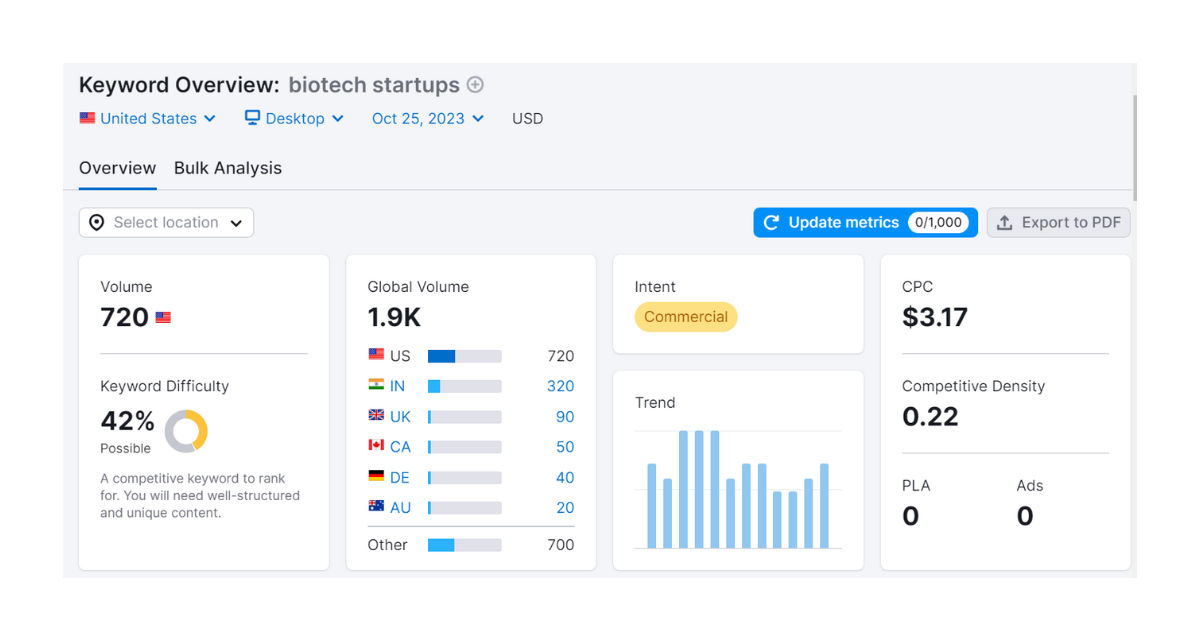
This type of strategy works for all businesses and niches looking to improve their SEO, from law firms to e-commerce. And it’s not just finding the right keywords; it’s also placing them in the right places in your content. If your content contains those words and phrases used by customers, you will increase your visibility by providing helpful answers using the right language.
Backlink Building
Backlinks refer to when other websites link to your website. Historically, there were some practices we now call “black hat SEO” where companies bought backlinks from hundreds or thousands of websites that they or a vendor built for the specific purpose of backlinking. Buying backlinks is a direct violation of Google’s guidelines because it’s considered link spam.
That strategy will get you some hefty penalties if you try it now. Also, you want backlinks from high-quality, highly relevant websites to get the SEO benefit. Essentially, when someone links to your site, this link helps tell Google and other search engines that you’re an authority on the topic.
So, how do you capture some of these elusive backlinks? You must create excellent and high-value content that people will organically backlink to you. We know, easier said than done, but if you want true results, you have to put in the work. You can also supplement your backlink strategy by hitting the digital pavement and building strategic partnerships.
Content Creation
Content is the heartbeat of your website’s SEO strategy. Without helpful content, search engines have nothing to rank. Content is anything your audience reads, watches, or listens to, including:
- Blogs
- Webpage text
- Infographics
- Videos
- Podcasts
- Newsletters
- Social media posts
You should always strive to publish helpful, robust content that directly answers your audience’s questions.
Technical SEO
Technical SEO refers to a website’s behind-the-scenes technical elements that allow search engines like Google to crawl efficiently, index, and understand its content. Optimizing these technical factors is crucial for ranking well organically.
Some critical technical SEO factors include site architecture, website speed, mobile optimization, proper markup implementation, effective URL structures, use of alt text and headings, meta-data, and overall semantic HTML code. Together, these elements help communicate relevancy and topic focus to search engines. They also impact how quickly and easily Googlebot can crawl each page.
Ensuring your website follows Google’s technical best practices and troubleshooting any crawling or indexing issues enables Google to read your pages—and better understand their content. With this solid technical base, your other SEO efforts, like keyword research, link building, and content creation, will become even more effective at driving organic rankings and traffic.
One significant development in technical SEO is the emergence of mobile-first indexing. This approach means Google primarily uses content’s mobile version when indexing and ranking. Most internet users access the web via mobile devices, and mobile-first indexing reflects this trend by ensuring that mobile-optimized content is a priority. Adapting to mobile-first indexing is not just an optional enhancement; it’s a fundamental aspect of modern SEO practices that align with user behavior and search engine algorithms.
While less flashy than content work, technical SEO is equally essential for SEO success.
AI and SEO
AI stormed onto the stage in 2022 and is impacting many workflows, including how we might approach SEO. For example, ChatGPT’s Advanced Data Analysis lets you upload lists of keywords and analyze which ones you might pursue. It can also help you brainstorm long-tail keywords and potential blog topics to help you compete. Additionally, Google and other search engines are planning significant changes that will make AI part of the search experience, impacting how we approach SEO strategies.
There were many conversations in 2023 speculating about whether or not Google will penalize content created in part by AI. However, Google updated its guidance about AI-generated content to clarify that it does not outright prohibit or penalize the use of AI for content creation.
Google’s E-E-A-T guidelines (experience, expertise, authoritativeness, and trustworthiness) are a helpful guide to measure whether or not content is valuable to its users. Artificial intelligence can certainly help refine the expertise and authoritativeness of your content, but it won’t help with experience and trustworthiness because these require authentic human insight.
Experience is earned over time through first-hand involvement in a subject. And trustworthiness is also a human trait built on relationships and reputation.
So, while artificial intelligence can efficiently generate content that sounds authoritative, it cannot demonstrate the honest, hard-won experience that builds credibility. We expect Google to continue to favor websites that lean into their experience.
The Role of SEO in Digital Marketing
Metric Marketing’s digital marketing experts understand that SEO can feel overwhelming. It’s obvious that SEO is important, but where do you start? And, after you start, how do you know that what you’re doing is even positively impacting your business? The good news is that we are here to help.
We are leading experts in the field of digital marketing for a reason. We take a data-driven approach to the role of SEO in digital marketing, focusing our time and effort on creating content and websites that we know can produce results. And while some businesses might try to rank quickly using black hat SEO tactics like keyword stuffing or cloaking, they’ll eventually be penalized by Google.
Our SEO team lives by the mantra of growth over time. We trust that patient, ethical SEO pays off in the long run, and we have the data to prove it.
Should I Have an SEO Strategy?
The short answer is yes! SEO is an intentional, data-driven approach to increase the quality of your business’s digital marketing and the visibility your business receives. The benefits of SEO can only help your business, making it worth the time spent researching. SEO takes a lot of deliberate analysis. It is a complex, ever-changing practice.
As new technology emerges and evolves, so too does SEO. SEO drives traffic, promotes your brand, engages with customers, and directly relates to user experience. In short, SEO is an integral component of your business’s successful digital marketing.
How SEO Can Boost Your Business
Build Trust With Your Customers
When your business ranks highly in organic search results, it signifies you are an authoritative source that search engines deem relevant for those queries. Appearing on page one, especially in the coveted top three spots, makes internet users more likely to trust your brand, visit your site, and convert.
According to Search Engine Journal, Google is Americans’ most trusted digital resource. As a result, they’ll trust that your brand has an answer to their question through trust transference—the concept that trustworthiness of one entity can be transferred to another through endorsement.
SEO helps earn clicks and traffic through relevance rather than paid ads. And people often consider organic results more trustworthy.
If your platform provides what your users are looking for—whether that be in the form of information, answers to questions, products, or services—then you begin to establish trust with your customers.
Improve User Experience
User experience (UX), which is how your audience interacts with your website, works hand in hand with SEO. When your customers have a positive experience with your business, you get more web clicks, increase traffic, and ultimately, improve your SEO.
Additionally, many elements of strong technical SEO also enhance UX. For example, optimizing website speed with faster load times creates a more positive visitor experience. Mobile optimization ensures your site works seamlessly on smartphones with responsive design and tap targets. Easy site navigation, logical URL structures, and a seamless internal link structure also help visitors quickly find information.
Increase Lead Generation
One of the major benefits of SEO is generating more quality leads for your business. When people use relevant keywords to search for products or services, they have clear intent and are actively seeking the types of products/services your company offers.
SEO delivers pre-qualified, interested leads to your site. Help convert them by optimizing your website and content for keywords related to your offerings. High-quality leads at the top of the funnel are more likely to turn into customers further down the line.
In addition to traditional SEO bringing in leads from broad searches, local SEO can generate leads from geographic and intent-based local queries. Optimizing your website and Google Business Profile for keywords with local intent—like “orthodontists near me” or “auto repair”—helps you pull in prospects searching for businesses in specific cities and towns.
Knowing the Difference Between Paid and Organic Searches
Paid and organic search refer to the two main ways your website can appear in search engine results. Paid search means using advertising dollars for higher placement on relevant SERPs. It requires an ongoing ad budget and is excellent for testing the demand for a product or offer.
A common paid search strategy is pay-per-click (PPC) advertising. With PPC, you bid on specific keywords relevant to your business. When people search for those terms, your ads may show up at the top or side of the results page. You only pay when someone clicks your ad, not just for impressions.
Other paid search models include CPM (cost per mille), when you pay for every one thousand impressions, regardless of clicks. Call-only ads are another option—these aim to drive phone calls rather than website traffic by showing a clickable phone number in search results.
Organic search ranks content naturally based on relevance, authority, and SEO best practices.
Organic SEO takes time to build rankings through content, backlinks, and technical optimization. The goal of organic search is to rank highly for valuable keywords without spending ad dollars. Search results include not just the main organic bluelinks but also other organic formats like images, videos, featured snippets, people also ask questions, and knowledge panels.
Both paid and organic search have vital roles in a digital marketing strategy. For example, PPC quickly drives traffic, tests keywords, and can complement organic SEO efforts.
Contact Us Today for Your SEO Digital Marketing Needs
Having a solid SEO team in your corner is essential to the success of your digital marketing endeavors. If you have any questions about why SEO is important for business or professional search engine optimization in general, contact us today!
We’d love to chat with you about the importance of SEO and how it can support the success of your business. Fill out our online contact form to tell us what you’re looking for. We look forward to connecting with you!
Must-read articles
Looking for something else?
There's so much more
Ready to Inquire?




